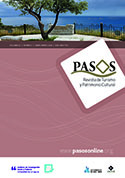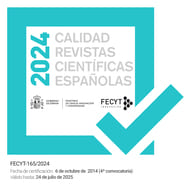Emotional intelligence in Tourism: a study on workers of foodservice companies in Southern Brazil
DOI:
https://doi.org/10.25145/j.pasos.2024.22.006Keywords:
Tourism, Foodservice, Emotional Intelligence, EI Dimensions, WLEIS ScaleAbstract
The foodservice industry demands high levels of positive emotional behavior from all workers, especially those who interact directly with consumers. For this reason, emotional intelligence is an area of interest for foodservice. The objective of the study was to analyse the emotional intelligence (EI) of workers in foodservice companies in the cities of Itajaí and Balneário Camboriú, in southern Brazil. To that end, a survey was carried out with a sample of 284 respondents. The data collection instrument was based on the WLEIS scale. Analyses were performed using SPSS and SmartPLS software. As a result, it was seen that employees in the foodservice sector demonstrate how to use their emotions, but have difficulties in managing them. The use of emotion was the EI dimension that obtained the best results, and the emotion regulation dimension was the one that obtained the lowest averages. It is considered that EI is influenced by variables linked to gender, educational level and work position. The information gathered can assist in the subsidy of training and development programs to help employees in the foodservice sector.
Downloads
Publication Facts
Reviewer profiles N/A
Author statements
- Academic society
- PASOS. Revista de Turismo y Patrimonio Cultural
- Publisher
- Instituto Universitario de Investigación Social y Turismo. Universidad de La Laguna (España) - Instituto Universitario da Maia ISMAI (Portugal)
References
Aho, O. W. (2020). The link between job satisfaction and the intent to leave among casino employees. Journal of Human Resources in Hospitality & Tourism, 19(4), 417-442.
Bani-Melhem, S., Abukhait, R. M., & Mohd. Shamsudin, F. (2020). Does job stress affect innovative behaviors? Evidence from dubai five-star hotels. Journal of Human Resources in Hospitality & Tourism, 19(3), 344-367
Barrett, L. F., & Satpute, A. B. (2019). Historical pitfalls and new directions in the neuroscience of emotion. Neuroscience letters, 693, 9-18.
de Oliveira, B. S., Lisboa Sohn, A. P., Pontes, N., & Glavas, C. (2022). Emotional intelligence and stress coping style in the foodservice industry in Brazil. Journal of Human Resources in Hospitality & Tourism, 1-27.
Ceribeli, H. B., & Barbosa, R. M. (2019). Análise da Relação entre Suporte Organizacional Percebido, Exaustão e Comprometimento Organizacional. Revista Reuna, 24(3), 1-19.
Ciarrochi, J. V., Chan, A. Y., & Caputi, P. (2000). A critical evaluation of the emotional intelligence construct. Personality and Individual differences, 28(3), 539-561.
Cichy, R. F., Cha, J., & Kim, S. (2007). Private club leaders’ emotional intelligence: Development and validation of a new measure of emotional intelligence. Journal of Hospitality & Tourism Research, 31(1), 39-55.
Choi, H. M., Mohammad, A. A., & Kim, W. G. (2019). Understanding hotel frontline employees’ emotional intelligence, emotional labor, job stress, coping strategies and burnout. International Journal of Hospitality Management, 82, 199-208.
Damasio, A. (2003). Feelings of emotion and the self. Annals of the New York Academy of Sciences, 1001(1), 253-261.
de Freitas, R. S. G., & Stedefeldt, E. (2020). COVID-19 pandemic underlines the need to build resilience in commercial restaurants’ food safety. Food Research International, 136, 109472.
Goffman, E. (1978). The presentation of self in everyday life (p. 56). London: Harmondsworth.
Goleman, D. (1995). Inteligência Emocional: a teoria que redefine o que é ser inteligente. Editora Objetiva: SP.
Goleman, D. (1999). Trabalhando com a inteligência emocional. Objetiva.
Hair, J. F., Black, W. C., Babin, B. J., Anderson, R. E., & Tatham, R. L. (2009). Análise multivariada de dados. Porto Alegre: Bookman editora.
Han, S. J., Kim, W. G., & Kang, S. (2017). Effect of restaurant manager emotional intelligence and support on front-of-house employees’ job satisfaction. International Journal of Contemporary Hospitality Management.
Ho, K. F. W., Ho, K. F., Wong, S. Y., Cheung, A. W., & Yeoh, E. (2020). Workplace safety and coronavirus disease (COVID-19) pandemic: survey of employees. Bulletin of the World Health Organization.
Hofmann, V., & Stokburger-Sauer, N. E. (2017). The impact of emotional labor on employees’ work-life balance perception and commitment: A study in the hospitality industry. International Journal of Hospitality Management, 65, 47-58.
Hur, W. M., Moon, T. W., & Jun, J. K. (2013). The role of perceived organizational support on emotional labor in the airline industry. International Journal of Contemporary Hospitality Management.
Kim, H. J., & Agrusa, J. (2011). Hospitality service employees’ coping styles: The role of emotional intelligence, two basic personality traits, and socio-demographic factors. International Journal of Hospitality Management, 30(3), 588-598.
Kim, K., & Jogaratnam, G. (2010). Effects of individual and organizational factors on job satisfaction and intent to stay in the hotel and restaurant industry. Journal of Human Resources in Hospitality & Tourism, 9(3), 318-339.
Kim, T. T., Yoo, J. J. E., Lee, G., & Kim, J. (2012). Emotional intelligence and emotional labor acting strategies among frontline hotel employees. International Journal of Contemporary Hospitality Management.
Kitayama, S. E., & Markus, H. R. E. (1994). Emotion and culture: Empirical studies of mutual influence (pp. xiii-385). American Psychological Association.
Koc, E., & Boz, H. (2020). Development of hospitality and tourism employees’ emotional intelligence through developing their emotion recognition abilities. Journal of Hospitality Marketing & Management, 29(2), 121-138.
Fedoruk, L., & Lumley, M. (2015). The link between Emotional Intelligence (EI) and cultural dimensions in the context of the micro hospitality sector. Journal of Organisational Studies and Innovation, 2(3), 49-68.
Johanson, M. M., & Woods, R. H. (2008). Recognizing the emotional element in service excellence. Cornell Hospitality Quarterly, 49(3), 310-316.
Jung, H. S., & Yoon, H. H. (2014). Moderating role of hotel employees’ gender and job position on the relationship between emotional intelligence and emotional labor. International Journal of Hospitality Management, 43, 47-52.
Jung, H. S., & Yoon, H. H. (2015). Understanding regulatory focuses: the role of employees’ regulatory focus in stress coping styles, and turnover intent to a five-star hotel. International Journal of Contemporary Hospitality Management.
Jung, H. S., & Yoon, H. H. (2016). Why is employees’ emotional intelligence important? The effects of EI on stress-coping styles and job satisfaction in the hospitality industry. International Journal of Contemporary Hospitality Management.
Lam, L. T., & Kirby, S. L. (2002). Is emotional intelligence an advantage? An exploration of the impact of emotional and general intelligence on individual performance. The journal of social Psychology, 142(1), 133-143.
Langhorn, S. (2004). How emotional intelligence can improve management performance. International Journal of Contemporary Hospitality Management.
Lee, L., & Madera, J. M. (2019). A systematic literature review of emotional labor research from the hospitality and tourism literature. International Journal of Contemporary Hospitality Management.
Liljander, V., & Mattsson, J. (2002). Impact of customer preconsumption mood on the evaluation of employee behavior in service encounters. Psychology & Marketing, 19(10), 837-860.
Lyu, E. S., & Lee, K. A. (2018). The effects of job characteristics on job burnout, engagement and turnover intention of middle and high school foodservice employees. The Korean Journal of Food and Nutrition, 31(1), 70-79.
Luckstead, J., Nayga Jr, R. M., & Snell, H. A. (2021). Labor issues in the food supply chain amid the COVID‐19 pandemic. Applied Economic Perspectives and Policy, 43(1), 382-400.
Mattos, C., & Silva, R. C. (2019). Características da gestão de pessoas e clima para serviços em restaurantes. Revista de Carreiras e Pessoas, 9(1).
Mayer, J. D., & Salovey, P. (1997). What is emotional intelligence. Emotional development and emotional intelligence: Educational implications, 3, 31.
Nadler, R., Carswell, J. J., & Minda, J. P. (2020). Online mindfulness training increases well-being, trait emotional intelligence, and workplace competency ratings: A randomized waitlist-controlled trial. Frontiers in psychology, 11, 255.
Oh, H., & Jang, J. (2020). The role of team-member exchange: Restaurant servers’ emotional intelligence, job performance, and tip size. Journal of Human Resources in Hospitality & Tourism, 19(1), 43-61.
Ramos, H. M., Mustafa, M., Caspersz, D., & Raveentheran, A. (2021). Organizational support and pro-organizational behaviors in hotel family-SMEs: the role of emotional intelligence. Journal of Human Resources in Hospitality & Tourism, 1-23.
Restubog, S. L. D., Ocampo, A. C. G., & Wang, L. (2020). Taking control amidst the chaos: Emotion regulation during the COVID-19 pandemic.
Rodrigues, N., Rebelo, T., & Coelho, J. V. (2011). Adaptação da Escala de Inteligência Emocional de Wong e Law (WLEIS) e análise da sua estrutura factorial e fiabilidade numa amostra portuguesa. Adaptação da Escala de Inteligência Emocional de Wong e Law (WLEIS) e análise da sua estrutura factorial e fiabilidade numa amostra portuguesa, (55), 189-207.
Salcido-Cibrián, L. J., Ramos, N. S., Jiménez, Ó., & Blanca, M. J. (2019). Mindfulness to regulate emotions: The Mindfulness and Emotional Intelligence Program (PINEP) and its adaptation to a virtual learning platform. Complementary therapies in clinical practice, 36, 176-180.
Salovey, P., & Mayer, J. D. (1990). Emotional intelligence. Imagination, cognition and personality, 9(3), 185-211.
Scott-Halsell, S. A., Blum, S. C., & Huffman, L. (2008). A study of emotional intelligence levels in hospitality industry professionals. Journal of Human Resources in Hospitality & Tourism, 7(2), 135-152.
Scott-Halsell, S., Blum, S. C., & Huffman, L. (2011). From school desks to front desks: A comparison of emotional intelligence levels of hospitality undergraduate students to hospitality industry professionals. Journal of Hospitality, Leisure, Sports and Tourism Education (Pre-2012), 10(2), 3.
Shipper, F., Kincaid, J., Rotondo, D. M., & Hoffman, R. C. (2003). A cross‐cultural exploratory study of the linkage between emotional intelligence and managerial effectiveness. The International Journal of Organizational Analysis.
Stoyanova-Bozhkova, S., Paskova, T., & Buhalis, D. (2022). Emotional intelligence: a competitive advantage for tourism and hospitality managers. Tourism Recreation Research, 47(4), 359-371.
Sy, T., Tram, S., & O’hara, L. A. (2006). Relation of employee and manager emotional intelligence to job satisfaction and performance. Journal of vocational behavior, 68(3), 461-473.
Tesone, D. V. (2005). Hospitality Human Resource Management: A Practitioner’s Perspective.
Yurcu, G., & Akinci, Z. (2019). The mediating role of mobbing in the relationship between personal value and depression: A case study of hospitality employees. Journal of Human Resources in Hospitality & Tourism, 18(4), 471-503.
Tsaur, S. H., & Ku, P. S. (2019). The effect of tour leaders’ emotional intelligence on tourists’ consequences. Journal of Travel Research, 58(1), 63-76.
Wolfe, K., & Kim, H. J. (2013). Emotional intelligence, job satisfaction, and job tenure among hotel managers. Journal of Human Resources in Hospitality & Tourism, 12(2), 175-191.
Wong, C. S., & Law, K. S. (2002). The effects of leader and follower emotional intelligence on performance and attitude: An exploratory study. The leadership quarterly, 13(3), 243-274.
Zhao, X., Mattila, A. S., & Ngan, N. N. (2014). The impact of frontline employees’ work–family conflict on customer satisfaction: The mediating role of exhaustion and emotional displays. Cornell Hospitality Quarterly, 55(4), 422-432.
Downloads
Published
How to Cite
Issue
Section
License
Copyright (c) 2023 Ana Paula Lisboa Sohn, Bruno Santucci de Oliveira, Nicolas Pontes

This work is licensed under a Creative Commons Attribution-NonCommercial-NoDerivatives 4.0 International License.
I confirm that the work is original (of my/our authorship), and that it will not be submitted to other journals or publications until the final resolution of the review process in PASOS, RTPC.
I authorize the publication of my work by PASOS, PSTN of free and open access in any of the formats that I deem appropriate, for an indefinite period of time and as a non-remunerated collaboration.
Likewise, the author(s) understands that the published work may be linked or deposited on any server or included in other publications (republication), provided that the new place and/or new edition references the original publication and acknowledges the authorship and copyright ownership of PASOS RTPC publications.
Authors understand that a plagiarism-self-plagiarism check will be performed, and the article may be removed at any time from the editorial flow.










